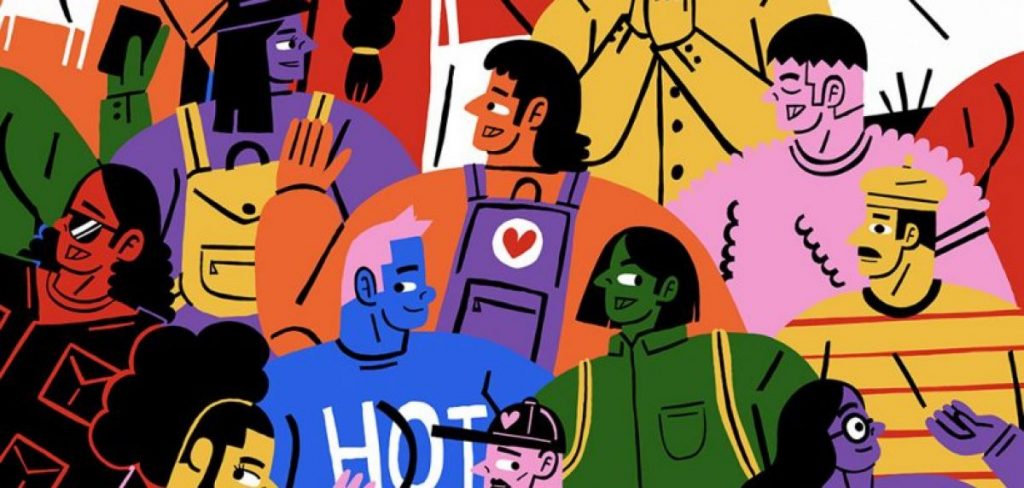For my micro-teaching day I wanted to push myself into trying something new.
Reasoning behind my idea: I am a big nerd and I engage with games and roleplaying a lot in my spare time, and I run game design and coding workshops as an AL on BA Illustration at Camberwell.
After 4 years on the course I have also noted that there is a lack in knowledge exchange with my peers about student journeys. As an AL I almost never get asked about what I have noticed or If I have any concerns or ideas to help improve student welfare and support.
I want to combine my knowledge of games and roleplaying while also helping staff to have conversations around issues students are currently facing.
This will also be opportunity for staff to hold each other accountable if problematic portrayals of students get presented to the group. I hope it’s easier to flag this when discussing hypothetical student scenarios rather than real life students.
What did I do? I have devised a simple role playing game where teachers use prompts given by me and dice to imagine a student and their journey throughout higher education.
There are studies about how LGBT people use roleplaying games to experiment with gender identity and how it allows people to process difficult conversations through imagination rather than focusing on real life specifics. (Thom, 2022)

(Coloured dice for my workshop)
The Rules:
Step 1: Each player picks one set of coloured dice.
Step 2: The game leader (me) will then ask 5 questions, depending on the answer the player will do nothing or they will remove a dice from their pool. The questions will revolve around financial privilege where the players get to add a bit of themselves into the character that they will imagine.
Step 3: Each player rolls the dice, if they roll less than 12 their student did not make it through school, anything above means that they passed. The higher the number the better the grade.

(Example dice roll)
Step 4: Time to role play. Using the dice in front of them, the players will tell each other about their students. If the pool of dice has a lot of low numbers, what barriers could they symbolise? If they are high, what privileges or achievements can be found?
Step 5: Discuss When all the dice are counted, we go around the table and introduce our students as if they are real. We use the dice to tell a story.
Sharing with peers before the day: In order to prepare for the micro teach day I shared my idea with colleagues, some of who have already done the PGcert and others who are doing it with me.
One colleague mentioned that it sounded very similar to Persona Pedagogy, which is a framework where you develop fictional personas with intersecting identities in order to avoid specific people sharing lived experience. (National Library Of Medicine, 2019)
I did not have time to research this in depth but have added it to my reading list as I think it would be helpful in order for me to develop this concept further.
Bibliography:
James, Thom. (2022) They Came To Slay. 1st edn. Scotland: 404ink.
National Library Of Medicine (2019) Through the Eyes of Faculty: Using Personas as a Tool for Learner-Centered Professional Development. Available at: https://pmc.ncbi.nlm.nih.gov/articles/PMC6889841/ (Accessed: 13 Feb 2025).
